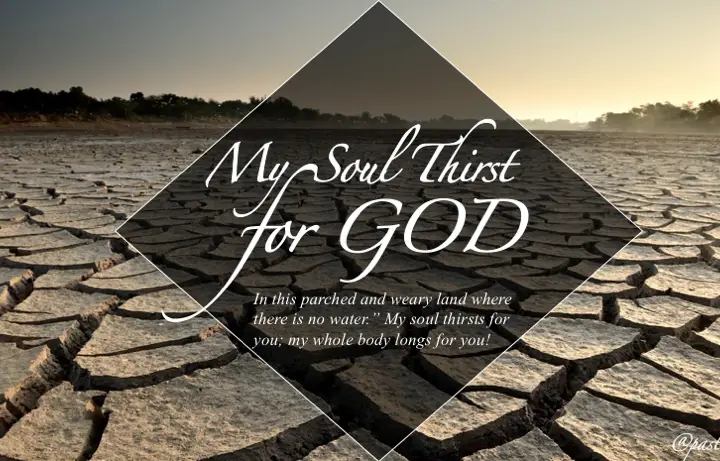As the deer pants for streams of water, so my soul pants for you, O God. My soul thirsts for God, for the living God. When can I go and meet with God?
Psalm 42:1-2
Launchpad #1
Three launchpads for meditation. The first focuses on the metaphor of a deer panting for streams of flowing water. The first thing that pops into my mind is a deer in North America, but this certainly would not have been on the mind of the psalmist. It would have been a deer that could have survived in Israel, a dry and arid land. Something like the Persian fallow deer, which is known for their intense desire for water.
When they are not around a stream, little droplets of dew on vegetation sustain them- drinking in as much of this little amount of water as possible. Then when they come to a rare stream, it is really a life source for them. They are not casually standing on the banks of the river, calming lapping in the water. No, they are running to the water, even jumping into the water, fully immersing themselves in it. So, the picture that the psalmist is painting is not one of a casual desire for God, but one of an intense pursuit of God where God is the very source of life.
Launchpad #2
The second launchpad for meditation is on the thing that is panting, the soul, which sounds likes the immaterial, eternal essence of a human. But the Hebrew word translated as soul is quite different. It is the word “nephesh”, which literally means throat. Used over 700 times in the Old Testament, it is usually not translated as throat, but instead as me, you, I, being, soul, and self. This is because the throat is an essential pathway of the flow of life: water and food flowing in and breathe flowing out.
Thus, in biblical Hebrew “nephesh” becomes a synecdoche, where a part of something refers to the whole of something. This might seem weird, but synecdoches are not just in Hebrew but are common across languages, including English. For example, a car might be referred to as a “set of wheels”. Or perhaps most closely related to “nephesh”, in English we take a “head count” when referring to the number of people in a room.
So, in this psalm, the psalmist is not desiring God with their immaterial existence, but with the whole of who they are as a living physical being. It is a brilliant double-usage of the word “nephesh” because the throat of a deer can thirst for water, but this physical thirst is also being used as a metaphor for how all of a person can long to know God.
Being connected with a source of water can keep you alive, but to really live means being connected to the ultimate source of life, your creator, your God. Similarly, the intro to this podcast invites you to experience the Bible as a feast for your soul. You may nourish your physical body with food that passes through your throat, but more importantly you can savor scripture with the whole of your physical being.
Launchpad #3
The third launchpad for meditation is a reflection on how the soul is satisfied, by going and meeting with God. Perhaps, especially for you introverts, this may bring to mind connecting with God in solitude, for example being alone with God in nature. While this is a theme elsewhere in the Bible, the context of these verses is very different.
Most commentators view Psalm 42 and Psalm 43 as a single psalm of lament. The psalmist is expressing frustration in being unable to join in community worship. The desire of the psalmist is to join others in worshipping God. Now in the United States we have the freedom to join together with other believers to worship God. But all too often we come to worship in a community with half-hearted hearts, very unlike the Persian fallow deer with a fully beating heart panting after streams of flowing water. So, it’s my desire that I would not have a half-hearted heart, that I would desire to know God through worship with other believers.
